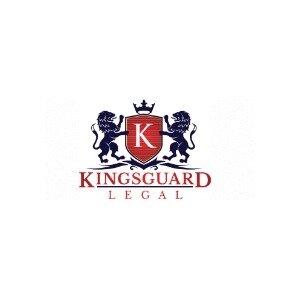Best Brokerage Lawyers in United Kingdom
Share your needs with us, get contacted by law firms.
Free. Takes 2 min.
Free Guide to Hiring a Real Estate Lawyer
Or refine your search by selecting a city:
List of the best lawyers in United Kingdom
About Brokerage Law in United Kingdom
Brokerage in the United Kingdom encompasses activities related to financial services, investment management, real estate transactions, and more. Brokers act as intermediaries, connecting buyers and sellers to facilitate transactions. The legal framework governing brokerage activities is designed to ensure fair practices and protect clients' interests. This includes compliance with financial regulations, adherence to ethical standards, and maintaining transparency and integrity in all dealings.
Why You May Need a Lawyer
There are several situations in which individuals or businesses might require legal assistance in brokerage-related matters. Some common scenarios include:
- Disputes over misrepresentation or breach of contract.
- Issues related to negligence or failure to disclose pertinent information.
- Compliance with regulatory requirements set by the Financial Conduct Authority (FCA) or other regulatory bodies.
- Handling matters related to licensing and registration of brokerage firms.
- Advising on tax implications and financial structuring related to brokerage transactions.
- Legal assistance in securing and executing brokerage agreements.
Local Laws Overview
The United Kingdom has a comprehensive set of laws and regulations that govern brokerage activities. Key aspects include:
- Financial Services and Markets Act 2000 (FSMA): A crucial piece of legislation which outlines the regulation of financial services, consumer protection, and ensures transparency in brokerage activities.
- Financial Conduct Authority (FCA): The primary regulatory body overseeing brokers in the UK. The FCA sets and enforces rules to uphold integrity, fair competition, and consumer protection.
- Data Protection Act: Brokers must comply with data protection laws to ensure clients' personal and financial information is handled securely.
- Consumer Rights Act: This legislation provides protection to consumers engaging with brokerage services, ensuring they are treated fairly and receive accurate information.
Frequently Asked Questions
What is a broker's primary role?
A broker acts as an intermediary between a buyer and a seller to facilitate transactions. They often provide advice, execute orders, and offer support throughout the transaction process.
Do brokers in the UK need to be licensed?
Yes, brokers providing financial services must be authorized and regulated by the Financial Conduct Authority (FCA) to operate legally in the UK.
What are the risks of working with an unlicensed broker?
Engaging with an unlicensed broker can lead to financial loss, fraud risk, and lack of legal recourse. Always verify that a broker is FCA-authorized before proceeding.
How can I verify a broker's credentials?
You can check the FCA's Financial Services Register to verify if a broker is authorized and what services they are permitted to offer.
What fees do brokers typically charge?
Brokers may charge commissions, fees based on the transaction value, or fixed fees for specific services. It's crucial to understand these fees beforehand to avoid unexpected costs.
What should I do if I have a complaint against a broker?
Initially, contact the broker's customer service to resolve the issue. If unresolved, you can escalate it to the Financial Ombudsman Service for independent assessment and resolution.
What obligations do brokers have toward their clients?
Brokers have a duty of care to act in their clients’ best interests, provide accurate and complete information, and maintain transparency about risks and costs.
Can a broker provide legal advice?
While brokers can offer advice on financial products, they are not typically qualified to provide legal advice. Consult a legal professional for legal matters.
What is the difference between a broker and a financial advisor?
A broker facilitates transactions between buyers and sellers, while a financial advisor provides broader financial planning services, including investment advice, retirement planning, and more.
How do regulations protect consumers using brokerage services?
Regulations ensure that brokers act transparently, honestly, and in their clients' best interests. They also provide mechanisms for dispute resolution and protection against unfair practices.
Additional Resources
If you're seeking more information or need assistance, consider exploring the following resources:
- Financial Conduct Authority (FCA): The official body responsible for regulating brokers and protecting consumers in the UK.
- Financial Ombudsman Service: An independent service for resolving disputes between consumers and financial service providers.
- Citizens Advice Bureau: Provides free and impartial advice on a range of issues including financial and legal matters.
- The Law Society: Offers resources to find solicitors specializing in brokerage law.
Next Steps
If you need legal assistance in brokerage matters, consider the following steps:
- Identify Your Needs: Clearly define your issue and what you hope to achieve with legal help.
- Research Potential Lawyers: Look for solicitors with experience in brokerage law and positive client reviews.
- Consultations: Schedule initial consultations to discuss your case and understand the lawyer's approach and fees.
- Retain a Lawyer: Once you've chosen a lawyer, discuss the terms of engagement and ensure you understand the costs, timelines, and expected outcomes.
- Stay Informed: Keep abreast of new developments in brokerage law to ensure ongoing compliance and informed decision-making.
Lawzana helps you find the best lawyers and law firms in United Kingdom through a curated and pre-screened list of qualified legal professionals. Our platform offers rankings and detailed profiles of attorneys and law firms, allowing you to compare based on practice areas, including Brokerage, experience, and client feedback.
Each profile includes a description of the firm's areas of practice, client reviews, team members and partners, year of establishment, spoken languages, office locations, contact information, social media presence, and any published articles or resources. Most firms on our platform speak English and are experienced in both local and international legal matters.
Get a quote from top-rated law firms in United Kingdom — quickly, securely, and without unnecessary hassle.
Disclaimer:
The information provided on this page is for general informational purposes only and does not constitute legal advice. While we strive to ensure the accuracy and relevance of the content, legal information may change over time, and interpretations of the law can vary. You should always consult with a qualified legal professional for advice specific to your situation.
We disclaim all liability for actions taken or not taken based on the content of this page. If you believe any information is incorrect or outdated, please contact us, and we will review and update it where appropriate.
Browse brokerage law firms by city in United Kingdom
Refine your search by selecting a city.















